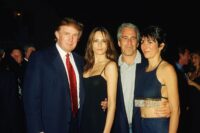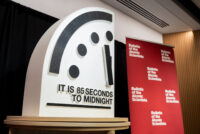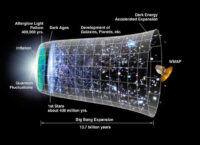Natural selection, Darwin’s insight into the workings of evolution, spans multiple generations, thousands of them. Plants and animals have been evolving for billions of years, and 99.99% of all the species that have arisen are extinct. Human-like beings have been around for perhaps a million years, and for all but the last 20,000 years in a totally natural world without artifacts manufactured by human science and invention.
With thousands of generations of beings having come before us subject to the conditions of the natural world, relying on their ability to adjust plus coping with the happenstance of DNA mutation, Homo sapiens (ie: Wise Beings) were naturally selected to inhabit the earth at this time. Our species, however, is now subject to unnatural conditions, namely conditions invented in the realm of imagination and then imposed upon each other and the environment. We’ve entered the Unnatural Selection Zone.
It’s too soon to tell whether Homo sapiens are simply adjusting to life in the Unnatural Selection Zone or if deeper, genetic and epigenetic DNA mutations are contributing to the creation of Homo sapiens 2.0. Are genetic alterations occurring in response to the use of digital technology? Unlikely. Two generations are not nearly enough for natural section to ply its trade.
Yet, we are being unnaturally selected by our technology, which is to say, those who thrive in a digital world of smart phones, apps, computer coding, software, and social media will be the richest and most powerful among us. The technologies we’ve developed to extend the reach of human capabilities are selecting Homo sapiens 2.0 for the future. Predicated upon harnessing unlimited energy resources, however, our unnatural selection may meet an unnatural end. The Second Law of Thermodynamics might take care of that.
One can make the argument that there is no thing that’s unnatural; if Homo sapiens are natural, then everything that Homo sapiens do or make is natural as well. This argument relies on originalism, the idea that since our beginnings were natural all that flows from us is natural too. Logically it holds water, but practically it’s a losing argument, an all-purpose excuse for why it’s okay that Homo sapiens are screwups. But we can’t just blame technology.
The technology of fire was perhaps our first technology, the intentional burning of savannahs to flush out dinner. We mustn’t forget the role of hunger and gaining its satisfaction in natural selection. Technology is neutral; what’s important is how it’s used and if it is the correct technology for the situation. Incorrectly applied technologies reveal effects over time, such as poisoning, depleting, depopulating, and despoiling. Consider, for example, the damage wrought by polluting gasoline-powered internal combustion engines on global health.
The technology of human language, our acquired ability to transmit information between generations without its being encoded in DNA, might be viewed as unnatural. The creation of an imaginary, nominal, word-based reality with embedded meanings, interpretations, rules, beliefs, teachings, and values creates a complex and often confusing unnatural environment to navigate; this, as if the unpredictable natural world does not require enough attention. Unnatural selection confers a fitness advantage to those who can use language adeptly by using the technology of language.
While natural selection works its magic across countless eons, unnatural selection goes to work in the span of one generation. That’s life in the Unnatural Selection Zone.






Be First to Comment